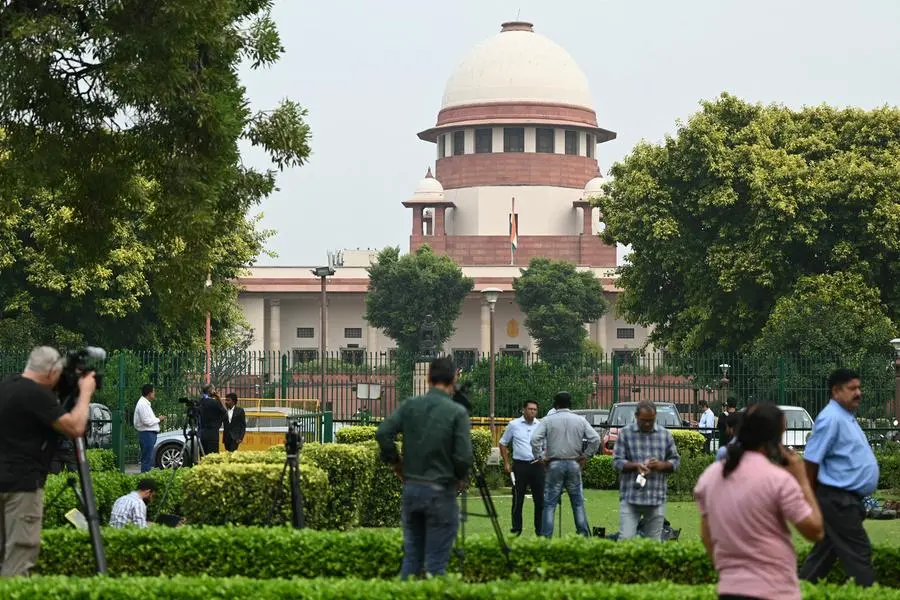PHOTO
India's largest known political donor is a lottery company which has been the subject of fraud and tax evasion probes, according to data published weeks before national elections.
The election commission published late Thursday a list detailing buyers of electoral bonds, a controversial funding scheme that has helped Prime Minister Narendra Modi's party build an immense campaign war chest dwarfing its rivals.
Electoral bonds account for the lion's share of political donations in India but the country's Supreme Court ruled them illegal last month, saying the scheme violated the right of voters to know who was financing their representatives.
Nearly $165 million of the bonds issued between April 2019 and January of this year, or around 11 percent of the total, were bought by a company helmed by Santiago Martin, dubbed the "Lottery King" by Indian media.
The data shows that his Future Gaming and Hotel Services, a company that has operated lotteries around the country, was the single biggest buyer of electoral bonds for the period.
Since 2011 Martin and his company have been subject to several investigations on suspicion of unpaid income tax, money laundering and fraud, according to media reports.
Before the electoral bonds scheme was struck down, critics said it reduced transparency by leaving the public unable to scrutinise whether donors had received political favours in return for their cash.
Lawmaker Jairam Ramesh of the opposition Congress party said the data showed Martin's company had donated to political parties after being raided by investigators on at least two occasions.
"There are many cases of companies that have donated electoral bonds, and immediately afterwards gotten huge benefits from the government," he wrote Friday in a post on social media platform X.
Martin's company is one of 14 among the top 30 donors under the electoral bond scheme that have reportedly been targets of criminal investigations, according to an AFP analysis of the data.
- 'Huge assumptions' -
The electoral bonds data confirmed that Modi's ruling Bharatiya Janata Party was far and away the biggest beneficiary of the scheme, receiving $730 million or around 47 percent of total bonds cashed.
Its main competitor Congress meanwhile received around $171 million in the same timeframe, or 11 percent of the total.
But the data does not map electoral bond buyers to recipients, leaving it unclear which individual and corporate donors were funding which parties.
Nirmala Sitharaman, Modi's finance minister, said Friday that any suggestion of a link between criminal investigations and political donations was based on "huge assumptions".
"What if the companies gave the money, and after that, we still went and knocked at their doors?" she asked a panel hosted by newspaper India Today.
Sitharaman also suggested it was unlikely that companies accused of criminal conduct had donated to the BJP.
The election commission has said it will on Saturday announce dates for national polls, with Modi and the BJP strongly favoured to win a third term.
Along with the BJP's opinion polling lead and vastly larger fundraising advantage, Modi remains widely popular with the public after a decade in power.




















